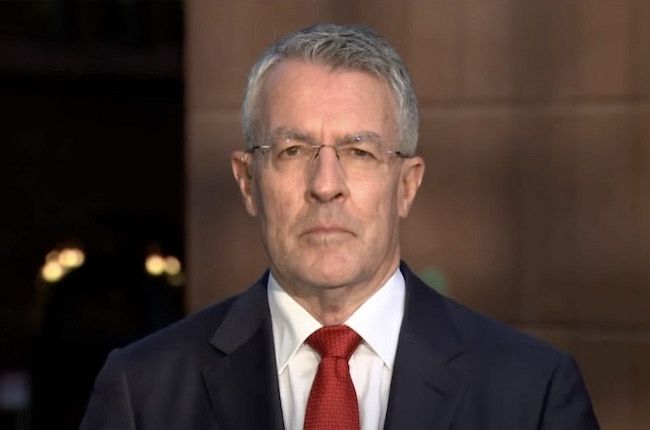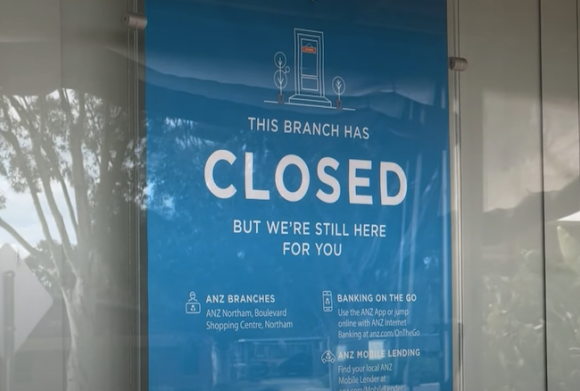False reporting of bank data over decades has prompted an open letter from Dale Webster calling for Attorney-General Mark Dreyfus to look at the Australian Prudential Regulation Authority's faulty management.
DEAR MR DREYFUS,
I write to highlight issues with the administration of the Financial Sector (Collection of Data) Act 2001 and the behaviour of the statutory authority involved – The Australian Prudential Regulation Authority [APRA] – which is arguably in breach of the ethics and integrity standards set out in the Public Service Act 1999.
This relates to APRA’s management of federal government data on bank service channels: the “authorised deposit-taking institution’s points of presence” [ADIPOP] statistics.
Banking institutions are required by law (ARS 796) to report all service channels annually, divided into three categories: branch, other face-to-face and ATMs.
In summary:
Every year from 2001 to 2020, the Rural Bank/Bendigo and Adelaide Bank falsely reported having hundreds more bank branches than it did — an offence under the Financial Services (Collection of Data) ACT 2001.
-
Every year from 2008 to 2022, Rabobank falsely reported having more than 100 bank branches than it did, an offence under the Financial Services (Collection of Data) ACT 2001.
-
The false reporting pertained to the banks claiming sites offered face-to-face cash service and business banking when they did not.
-
Instead, the banks directed customers to other service channels (Australia Post, other bank branches and ATMs) to obtain cash.
-
The false reporting was revealed in a story published by The Regional in May 2021, five months before the release of the 2021 Authorised deposit-taking institutions points of presence (ADIPOP) data managed by APRA.
-
APRA worked with the Bendigo and Adelaide Bank to correct the classification of the sites not only in the 2021 data but in historic data contained in the publication dating back another two years.
-
Although statistically significant, the amendments were not disclosed in the 2021 publication. (Similar changes in Australia Post data had been previously disclosed and future changes to Rabobank, although lesser in number, would be in 2022.)
-
The correction of the Bendigo and Adelaide Bank data was not picked up until April 2022 after APRA chairman Wayne Byres had been questioned about it in Senate Estimates by Senator Malcolm Roberts. Mr Byres stated at the time that he was not aware of any errors in the ADIPOP database.
-
Corrections were only revealed due to a random audit, which required the use of mapping software and more than a week of cross-checking against original copies of the historical data. (In short, it was an extremely difficult and time-consuming process to reveal what had actually occurred.)
-
While being questioned in Senate Estimates by Senator Malcolm Roberts, Mr Byres was also asked about two NAB branches that had been converted to “cashless” — that is, the bank was no longer providing face-to-face cash service and directing customers to another service channel to get cash and do business banking.
-
Mr Byres stated that these branches did not meet the definition of a branch under the Act and would need to be classified in the “other face-to-face” service channel rather than “branch”.
-
Treasurer Jim Chalmers’ office confirmed this in July 2022.
-
In October, both Treasury and APRA were provided with a list of more bank sites that had seemingly been falsely reporting for years (Rabobank) and sites with the identical service model to the two NABS that were mentioned in Parliament.
-
On 19 October, when APRA released its annual ADIPOP data for 2022, the Rabobank sites had been corrected along with another foreign bank that had been misreporting. These revisions were noted in the publication.
-
Also in the correct “other face-to-face” service channel were the two NABs cited in Parliament.
-
However, none of the sites with identical service models to the NABs had been changed from “branches” to “other face-to-face” as they should have been under the legislation and as confirmed by Mr Byres and Treasury.
-
When asked why the identical sites had not been corrected, APRA issued the following statement: In cases where branches were staffed and offered customers the ability to withdraw or deposit cash using ATMs, APRA considered that those facilities continued to meet its definition of a branch.
-
This contradicts the legislation as well as what APRA's own chairman told Parliament and what the Treasurer put in writing in July.
-
It is also nonsense in the context that some of NAB's “cashless” banks had been downgraded to “other face-to-face”, but another 14 identical sites (that were not mentioned in parliament) were allowed to remain as branches.
-
Obtaining cash from an ATM does not meet ARS 796 because:
- the “branch” service channel is specific to face-to-face service;
- an ATM is a separate service channel under legislation;
- an ATM does not meet the business banking requirements of a “branch”, that is, a business requiring a cash float of all coin and note denominations cannot obtain this from an ATM; and
- additionally, some banks don’t even own the ATMs on their sites and while a small proportion of ATMs can offer some coin and note combinations, there is no way of checking using ARS 796 if this is the case and for what is available.
To sum up:
Failure to disclose the correction of hundreds of errors that go back decades suggests APRA has colluded with the Bendigo and Adelaide Bank to cover up the misreporting.
APRA has taken no action against the Bendigo and Adelaide Bank (or any of the other banks) for misreporting of service channels, which carries significant penalties under the Financial Service (Collection of data) Act 2001.
Mr Byres appears to have misled Senator Roberts and, by extension, Parliament, about his knowledge of the long-standing errors in the APRA database.
APRA – in its latest data publication released on 19 October – has applied the legislation inconsistently, for the most part letting larger banks off the hook but cracking down on smaller and foreign institutions.
I suggest the following remedy:
APRA has within its power to reissue the 2022 authorised deposit-taking institution’s points of presence statistics as it did in 2019 when it corrected the publication of a large number of Australia Post sites that did not offer Bank@post services.
I request that the 2022 data be reissued as a revised edition with the 25 ANZ, NAB, Commonwealth Bank and Westpac sites that do not meet branch criteria under ARS 796 reclassified as “other face-to-face”. (Both APRA and Treasury have a list of these.)
I also request that the Bendigo and Adelaide Bank amendments made to the 2021, 2020 and 2019 data be disclosed in the 'important notice' section of the re-issued publication with a warning that as a result of the false reporting, the efficacy of previously published data back to 2001 has been compromised.
Given that this data has been used over the years by media, government committees such as the Regional Banking Taskforce, shareholders and businesses for planning purposes, a public statement would also better reflect the integrity standards of the Public Service Act 1999.
Dale Webster is an inaugural recipient of a Walkley Foundation Grant for Freelance Journalism on Regional Australia. She publishes independently through her own title, The Regional. You can follow Dale on Twitter @TheRegional_au.
 This work is licensed under a Creative Commons Attribution-NonCommercial-NoDerivs 3.0 Australia License
This work is licensed under a Creative Commons Attribution-NonCommercial-NoDerivs 3.0 Australia License
Support independent journalism Subscribe to IA.

Related Articles
- APRA leaves statistics in chaos after cleaning up its own mess
- Regulator's defiance of data law deems it dubious
- Blood on our hands: Banksia Hill is failing our children
- Inquiry into regional banking no more than cruel election stunt
- Banksia Hill nightmare highlights urgent need for prison reform














